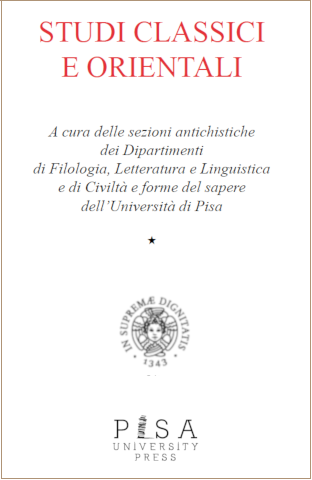LE PROBLÈME DE LA RESPONSABILITÉ CHEZ ÉPICURE
Abstract
The aim of this paper is to emphasize the importance of explanation in Epicurean ethics. The explanation of the phenomena, the scientific research of their causes at the level of the very principles (i.e. atoms and void), allows the human being to reach the tranquillity of the soul. This is the reason why Lucretius, following Epicurus, insists upon the fact that the aim of philosophy is «naturae species ratioque». Such an aspect of the atomistic philosophy is also valid for what constitutes, probably, the very condition of ethics: the fact that the agent is morally responsible and hence deserving of praise and blame. The atomistic explanation of the human responsibility is nevertheless a real problem; the hypothesis of the swerve of the atom might have been made by Epicurus in order to account for it, but it is impossible to understand satisfactorily how the swerve may be the cause of responsibility. The evidence of responsibility constitutes the main argument of the defenders of the thesis which considers that responsibility did not constitute a problem for Epicurus himself and that he simply saw no point in precising the causal link between swerve and human responsibility. In contrast with this thesis, the Author observes that the fact that responsibility does not need to be demonstrated (because every demonstration supposes it) does not prevent from explaining it. Epicurus is an empiricist, but he is an atomist too and what prevails in his epistemological methodology is the passage from the evident to the inevident. The field of ethics does not constitute an exception to this rule. There is a requirement of explanation of human responsibility in Epicurus, requirement that we don't know whether it has been fully satisfied or not, but that is, in any case, constitutive of the problematical character of responsibility.


